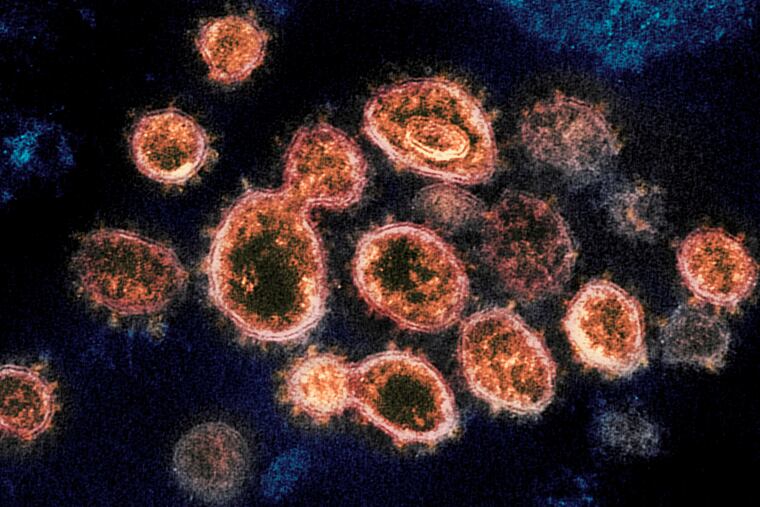Effective COVID-19 drug treatments remain frustratingly elusive a year into the pandemic
Again and again, the coronavirus has defied drugs that seemed likely to work against it

A year after the coronavirus pandemic roared into the United States, the therapeutic options for COVID-19 remain limited, reinforcing the vital importance of the new vaccines.
The only fully approved COVID-19 drug, the antiviral remdesivir, has shown modest benefit, at best, in hospitalized patients. Two “monoclonal antibodies” — synthetic versions of the body’s own disease-fighting antibodies — have raised hopes for keeping high-risk patients out of the hospital, but the National Institutes of Health treatment guidelines say there aren’t enough data to recommend them.
Dexamethasone, a venerable corticosteroid, is the only drug that has been shown to improve outcomes for severely ill, hospitalized patients. In those who develop clots, anticoagulants have demonstrated their value.
Meanwhile, two treatments that seemed promising — convalescent plasma and the rheumatoid arthritis drug Actemra — have been underwhelming in the latest rigorous studies.
Here is a summary of those studies, as well as one that assessed the safety of common blood-pressure medicines in COVID-19 patients:
Convalescent plasma: Timing matters
For a century, plasma from recovered patients has been transfused to treat various infectious diseases because this liquid part of the blood is loaded with infection-fighting antibodies.
Still, the U.S. Food and Drug Administration was criticized in August when it authorized emergency use of convalescent plasma for COVID-19 because the scientific support was circumstantial, and because the agency was under pressure from the Trump administration. The NIH guidelines do not recommend plasma for any patients.
This week, a small but meticulous Argentinian clinical trial published in the New England Journal of Medicine found plasma reduced the chance of progression to severe disease — but only for a certain demographic group under certain conditions. The 80 participants were age 65 or over, and half had chronic health conditions, so all of them were at high risk of severe disease. Only plasma with high levels of antibodies was used, and it was given within three days of the first symptoms. As the disease progresses, antibodies are no match for the tissue-damaging abnormalities fueled by COVID-19.
That small window of opportunity is a problem because most patients don’t go to the hospital until they are really sick.
“Our best data at this moment suggests that if plasma is going to work, it needs to be given very early in the course of infection, before they develop serious dysfunction,” John Zurlo, chief of infectious disease and chair of the COVID-19 clinical task force at Jefferson University Hospital, said in October.
Actemra: Hopes dim for use in COVID cytokine storm
Patients with life-threatening COVID-19 often develop an immune-system overreaction that unleashes organ-damaging molecules. This so-called cytokine storm is also a common complication of Kymriah, the breakthrough cancer treatment in which the patients’ T cells are genetically engineered to kill cancerous blood cells.
Carl June, the University of Pennsylvania researcher whose team pioneered T-cell therapy, discovered that Actemra (tocilizumab) was an antidote to the cytokine storm of Kymriah. He was optimistic that Actemra, originally approved to treat rheumatoid arthritis, would also relieve this complication in COVID-19.
But four new trials — three published in JAMA Internal Medicine and one in the New England Journal of Medicine — are the latest to dim hopes for Actemra in severe COVID-19.
The most encouraging trial found that after 14 days, 24% of patients required ventilation or had died, compared with 36% of patients receiving usual care. The other studies showed no benefit.
“Their findings do not support the routine use of tocilizumab for COVID-19 in most settings,” Jonathan B. Parr, an infectious disease specialist at the University of North Carolina, wrote in an editorial in JAMA Internal Medicine. “I plan to reconsider tocilizumab’s use if, and only if, more compelling data from randomized trials emerges.”
June thinks “the jury is still out.” Actemra inhibits a cytokine called interleukin-6, but the JAMA and NEJM trials did not require patients to have elevated levels of IL-6 before treatment. At Penn, June said, only about 20% of intensive care COVID-19 patients have had elevated IL-6.
“Thus it is possible that 80% of the patients enrolled [in the studies] had no potential way to benefit from tocilizumab.” June emailed.
Blood-pressure medicines don’t add harm
Early in the pandemic, researchers discovered that the coronavirus breaks into cells by latching onto a cell surface protein called ACE-2. That raised questions about blood-pressure medications (the acronyms are ACEI or ARB) because they act on the complex fluid balancing system that includes ACE-2.
The medications — mainstays of treating hypertension, heart disease, heart failure, diabetes, and chronic kidney disease — might make it easier for the virus to enter cells. On the other hand, because the drugs also tamp down inflammation, they might reduce the severity of COVID-19 .
A new study, led by University of Pennsylvania researchers and published Thursday in the Lancet Respiratory Medicine, provides reassurance. Hospitalized COVID-19 patients who discontinued their blood-pressure meds were compared with patients who continued. While the medications didn’t improve COVID-19 outcomes, neither did they worsen outcomes.
Jordana B. Cohen, the Penn physician who led the study, said the take-home message for COVID-19 patients is: “Don’t worry. Keep using the drugs, unless your doctor tells you not to.”